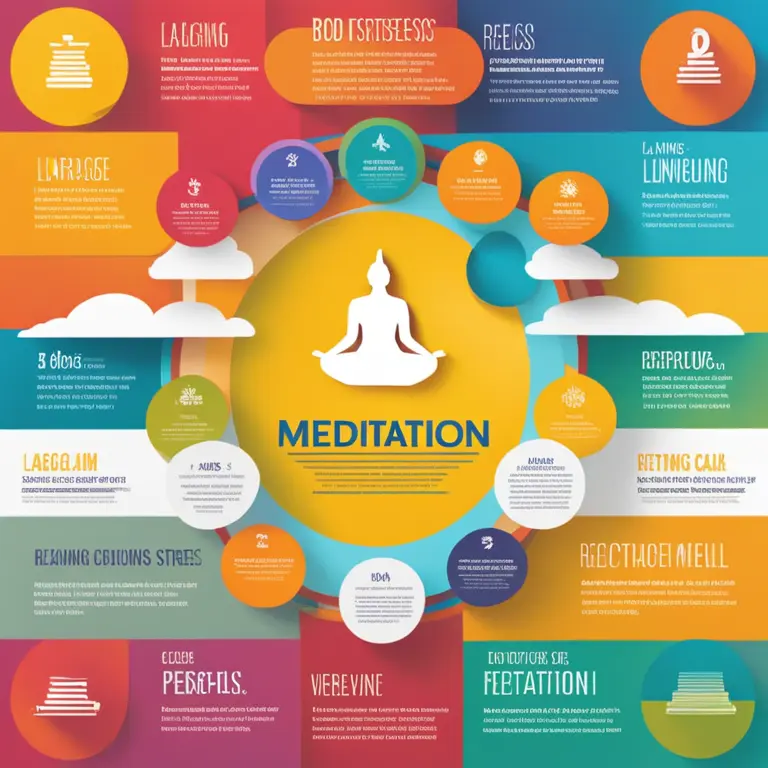
The Mechanics of Meditation: A Journey Inward
Delve into the science of meditation and learn how this ancient practice has modern implications for wellness, mental clarity, and personal growth.
article by Hina Kurosawa
The Essence of Meditation
Meditation is an ancient practice that has been modernized to fit into our busy lives. Though its roots are historical, the principles of meditation remain timeless: focus, awareness, and a deep connection to one's inner self. It transcends cultural boundaries and has been adopted globally as a technique for achieving personal serenity and equilibrium. Despite its simplicity, the mechanics behind meditation are quite intricate, involving both physiological and psychological transformations that produce tangible benefits.

The Brain on Meditation
When we meditate, our brain activity changes significantly. Brain scans of meditators show increased activity in areas related to attention, emotion regulation, and self-awareness. Furthermore, there is a decrease in the activity of the default mode network (DMN), which is linked to mind-wandering and self-referential thoughts—a marker for being less absorbed in the narrative of our past and future, which can often be a source of stress.

Stress Reduction and Mental Health
One of meditation's most celebrated benefits is its capacity to reduce stress. It encourages the body to enter a state of restful awareness, which is the exact opposite of the stress response. Reduced cortisol levels are a common biomarker of effective meditation. Moreover, meditation is known to enhance mental health by decreasing symptoms of anxiety and depression, frequently through mindfulness-based stress reduction (MBSR) programs that have become widely accessible and refined over time.

Physical Health and Meditation
Meditation's health benefits extend beyond the mind to influence physical wellness. Numerous studies suggest that regular meditation can help control pain, improve immune system response, and even lower blood pressure. These benefits are thought to arise from the practice’s ability to affect the autonomic nervous system, promoting parasympathetic activity—the rest-and-digest response—and dampening sympathetic activity, which triggers the fight-or-flight response.

Enhancing Self-Awareness
Individuals who practice meditation often report increased levels of self-awareness. This heightened self-understanding can lead to better decision-making and a more profound sense of peace. Furthermore, meditators typically exhibit enhanced emotional intelligence, empathetic ability, and are more adept at introspection—all crucial components for personal development and social interactions.
Cultivating Concentration
Meditation is also a powerful tool for improving concentration and attention. Techniques like focused attention meditation require individuals to concentrate on a single point, such as the breath, which can fine-tune the brain's ability to sustain attention. This is not only beneficial for the practice itself but can also have far-reaching effects on productivity and learning in other areas of life.
The Road Ahead for Meditation Research
While meditation's benefits are well-documented, the field of contemplative science—the intersection of meditation, psychology, and neuroscience—continues to explore its depths. With advancements in technology and a growing interest in holistic wellness, meditation research will likely reveal even more profound implications for our understanding of the mind and the potential for human advancement. The journey of meditation is ever-evolving, paralleling humanity's quest for deeper self-knowledge and wellbeing.
Published: 1/14/2024
Modified: 1/15/2024
More predictions
Come back here soon to learn more about yourself and your future


Mindfulness & Meditation: A Guide for High Schoolers
Discover the benefits of mindfulness meditation tailored for the hectic life of high school students, and learn simple strategies to incorporate it into the daily routine.


Easing Loneliness with Mindfulness Meditation
Explore how mindfulness meditation can provide solace and connection to alleviate the feelings of loneliness.


Harmonizing Life with Meditation Mantras
Delve into the transformative power of meditation mantras to align mind, body, and spirit for a harmonious existence.